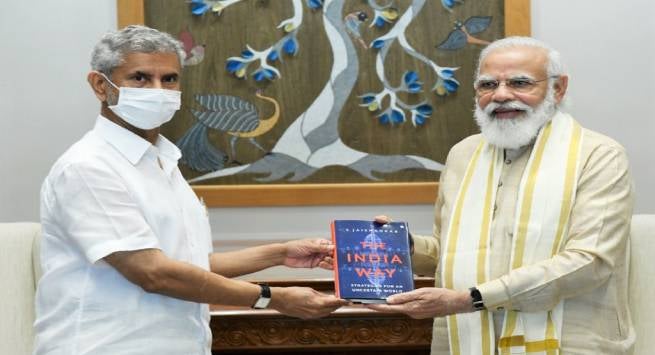
| Title: | Continuity and Change in Indian Foreign Policy |
| Author/s: | Chilamkuri Raja Mohan |
| Abstract: | The Narendra Modi government’s refusal to criticise the Russian invasion of Ukraine and its reluctance to support Western sanctions in Moscow has underlined India’s entrenched Russian connection. Reinforcing the old thinking on Russia is Delhi’s rediscovery of the ‘Global South’ and India’s renewed emphasis on championing the cause of the developing world. However, the apparent continuities in India’s foreign policy since the Jawaharlal Nehru era mask the significant departures in India’s international relations under Modi. |
| Date: | 21 December 2022 |
| Read More |
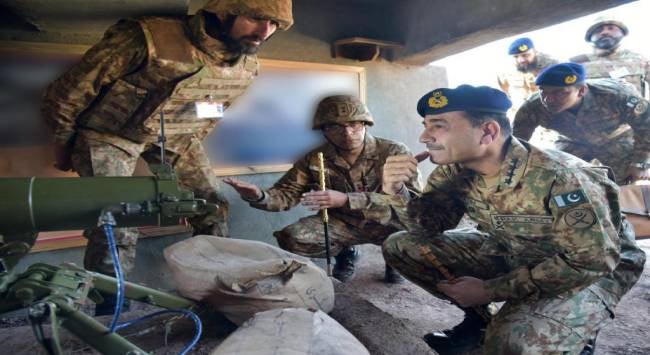
| Title: | Pakistan’s New Chief of Army Staff: Challenges for General Asim Munir |
| Author/s: | Vinay Kaura |
| Abstract: | General Asim Munir has succeeded General Qamar Javed Bajwa as the Chief of Army Staff of the Pakistan Army. Bajwa’s tenure as the Army chief remained controversial. Under his leadership, the military establishment actively interfered in Pakistan’s political process. Munir’s appointment came after months of speculation, controversy and lobbying as Pakistan’s overall political situation has become more complex and confusing due to former Prime Minister Khan Khan’s persistent anti-establishment rhetoric and pressure tactics. The paper highlights several challenges for Munir while arguing that the most pressing challenge would be to reestablish the Army’s tenable legitimacy to build an acceptable system of neutrality as well as to help the fragile Shehbaz Sharif government maintain a broadly non-confrontational system of governance based on constitutional accountability and electoral fairness. |
| Date: | 9 December 2022 |
| Read More |

| Title: | Prevention of Money Laundering Act in India: The ECIR and Presumption of Innocence |
| Author/s: | Vinod Rai |
| Abstract: | In a significant decision, the Supreme Court of India has decided to review its earlier order, passed on 27 July 2022, relating to permitting the Enforcement Directorate powers to arrest without providing a copy of the enforcement case information report and reversal of the presumption of innocence. The judgement had upheld the amendments passed by the government to the Prevention of Money Laundering Act 2002 and clarifications pertaining to Section 3 of the Act. In recent years, the Enforcement Directorate’s frequent use of the provisions of this Act has come up for concern in public circles and among political parties alleging that it is utilised to harass opponents of the government. |
| Date: | 5 September 2022 |
| Read More |

| Title: | Foreign Exchange Woes in South Asia – Are there Further Currency Crises Threats? |
| Author/s: | Deeparghya Mukherjee |
| Abstract: | Over the last few years, the global economy has been subjected to multiple shocks which have affected global commerce and could adversely affect the economies of various countries. This paper aims to investigate the recent trends in foreign transactions at a country level and the foreign reserves position of the South Asian countries to understand the risk of currency crashes or the need for caution towards bailout packages. |
| Date: | 28 July 2022 |
| Read More |
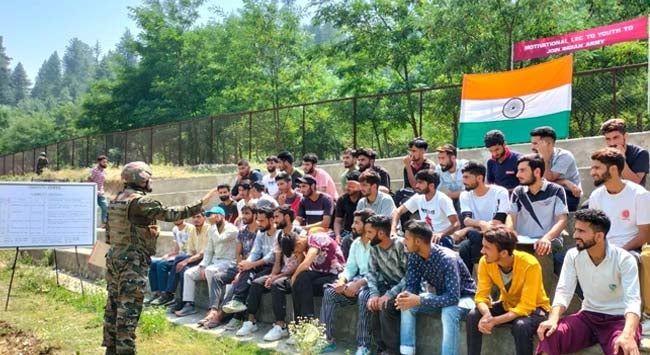
| Title: | Agnipath: The Scheme and its Issues |
| Author/s: | Vinod Rai |
| Abstract: | The Indian government recently announced a new scheme for recruitment into the armed forces. The ‘Agnipath’ or ‘Tour of Duty’ is designed to reduce the median age of the three services and restrain the burgeoning pension bill. The sudden introduction of the scheme seems to have upset the expectations of those preparing for recruitment as per the earlier pattern. Protests have induced certain relaxations by the government. The new recruitment process has commenced. While the new scheme is a step in the right direction, it is felt that the government did not undertake adequate consultation before introducing a fairly radical reform. |
| Date: | 19 July 2022 |
| Read More |
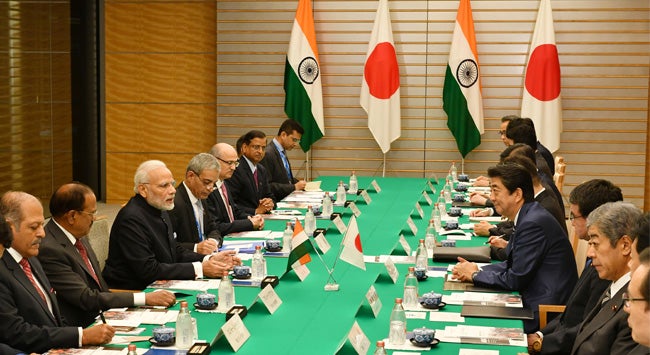
| Title: | Shinzo Abe’s Legacy and Japan’s India Engagement |
| Author/s: | Purnendra Jain |
| Abstract: | The recent assassination of former Japanese Prime Minister Shinzo Abe has left the world in shock. Abe was a consequential leader for the world and India-Japan relations. World leaders poured words of praise and recounted Abe’s sterling contribution to the international stage while condemning the violent attack, prematurely ending his life. India’s Prime Minister Narendra Modi issued several tweet messages, calling Abe his close friend and saying that “he was not only my but also India’s trusted friend”. He wrote an obituary titled ‘My friend, Abe-san’, outlining his cherished memories of Abe. In Abe’s demise, India lost a great friend and great champion. |
| Date: | 13 July 2022 |
| Read More |
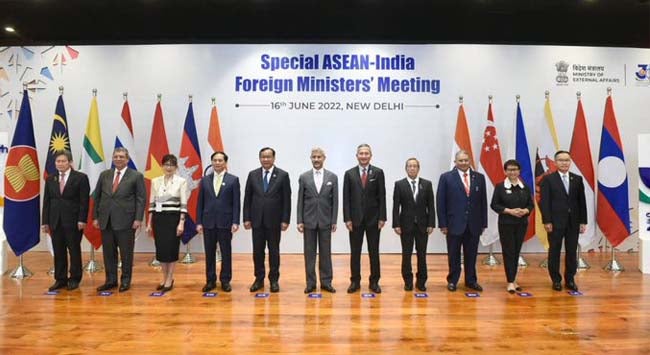
| Title: | ASEAN-India Relations: Potential for Further Growth |
| Author/s: | Hernaikh Singh |
| Abstract: | On 16 June 2022, India hosted the Special ASEAN-India Foreign Ministers Meeting. The occasion also marked the 30th anniversary of the establishment of dialogue relations between India and the Association of Southeast Asian Nations (ASEAN) and 10 years since the development of their strategic partnership. The leaders called for greater emphasis on trade growth, investment enhancement, defence and security, physical and digital connectivity, climate and sustainability action and greater exchanges among their citizens. At the same time, they exchanged views on developments in the region and elsewhere. This paper argues that despite the tremendous progress made in the last few decades in forging ties between ASEAN and India, their relations are not at their optimal. The two sides have challenges, but these are surmountable. Both ASEAN and India must take proactive approaches to ensure a brighter bilateral future. |
| Date: | 1 July 2022 |
| Read More |
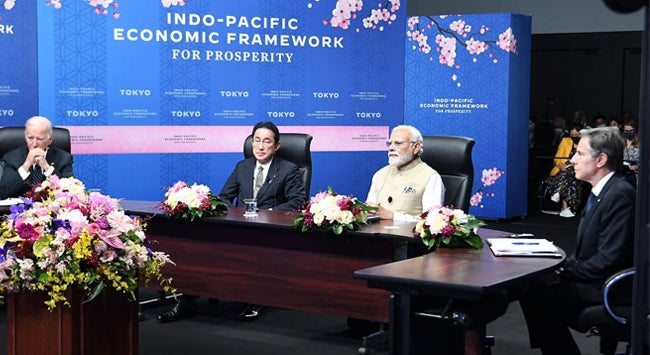
| Title: | The IPEF and India: Identifying the Prospects |
| Author/s: | Amitendu Palit, Kunthavi Kalachelvam, Namrata Yadav |
| Abstract: | By joining the American-led Indo-Pacific Economic Framework (IPEF), India has embarked on a proactive economic engagement in the Indo-Pacific. The IPEF’s work pillars connect to its long-term interests. While it will face challenges in acceding to certain standards, particularly in labour and environment, India’s robust ties with the United States and the recent experience of engaging in free trade agreements with the Organisation for Economic Co-operation and Development countries should see it engaging productively and confidently in the framework. |
| Date: | 2 June 2022 |
| Read More |
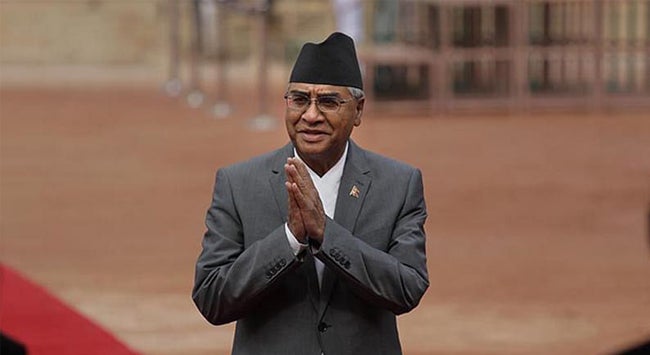
| Title: | Nepal in the First Half of 2022: Balancing Act in Geopolitics |
| Author/s: | Sujeev Shakya |
| Abstract: | The first half of 2022 for Nepal has been important from the perspective of how the country needs to balance its act as far as geopolitics is concerned. The relationship with the United States has been rescued. Its relationship with India continues to be problematic and there were continued efforts to mend it through high-level visits. China, though isolated by the pandemic, has become more aggressive and visible in Nepal. However, Nepal needs to move beyond these large countries and look at its relationship with the 180 countries that Nepalis reside in. |
| Date: | 27 May 2022 |
| Read More |
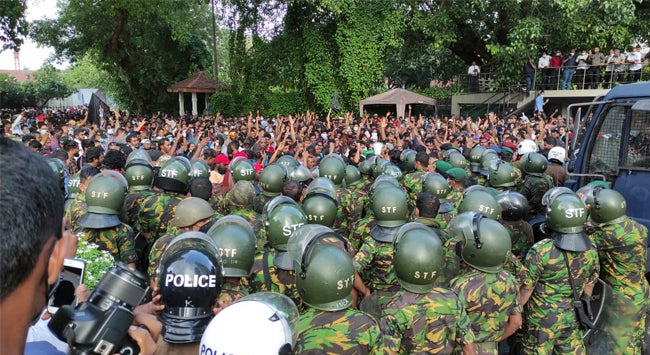
| Title: | Do Ethnic Divisions Disappear in the Face of State Collapse? A Reflection on Sri Lanka’s Internal Crisis |
| Author/s: | Sandunika Hasangani |
| Abstract: | Despite deep-rooted ethnoreligious divisions, an extraordinary ambiance of tolerance and togetherness is visible in protest sites in Sri Lanka, where men and women of all ethnicities and religious affiliations have gathered under one slogan #GoHomeGota. While their common intention is to fight the corrupt system and fix it, it is puzzling to see decades-old ethnoreligious divisions suddenly evaporating with the dire economic meltdown. If ethnoreligious polarisation is indeed fading away, how can we explain that? Does state collapse (appearing in the form of economic crisis with near-political anarchy) facilitate the disintegration of ethnic attributes? To find answers to these questions, this paper draws on the available theories of state collapse and ethnic identity change. It will also explain the ways in which ethnic attributes in Sri Lanka are being disintegrated with the deteriorating economy and what that implies for the future of ethnic unity in Sri Lanka. |
| Date: | 20 May 2022 |
| Read More |
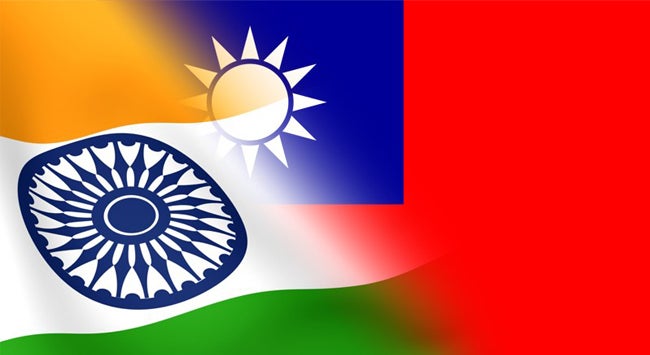
| Title: | India-Taiwan Ties: From Mutual Neglect to Growing Bonhomie |
| Author/s: | Sana Hashmi |
| Abstract: | India-Taiwan relations have traditionally been shaped by their respective ties with China. This is now beginning to change. A range of factors such as the COVID-19 pandemic, the India-China border dispute, China’s aggressive postures and its attempts to restrict Taiwan’s international space have prompted India and Taiwan to re-examine their respective policies and re-evaluate the overwhelming impact of the China factor in their bilateral relations. Arguably, both sides have tried to overcome this problem while consolidating the foundations of the India-Taiwan relationship on its merit in the last few years. While Taiwan unveiled its New Southbound Policy, India has also signalled subtle policy shifts in its engagement with Taiwan. Recent developments have highlighted the enormous potential of this relationship and the possibility for it to evolve further. |
| Date: | 19 May 2022 |
| Read More |

| Title: | COVID-19 and its Impact on India’s FTA Strategy |
| Author/s: | Amitendu Palit |
| Abstract: | Over the last one year and more, India has been robustly engaging in free trade agreements (FTAs). The engagement is in marked contrast to the scepticism displayed by New Delhi towards FTAs in the last decade. This paper argues that the far-reaching impacts of the COVID-19 pandemic have been decisive in India shifting to a proactive strategy to engage in FTAs. Imperatives for diversifying sourcing to avoid future supply chain setbacks have encouraged India to financially incentivise local capacities and pursue preferential trade arrangements. |
| Date: | 9 May 2022 |
| Read More |
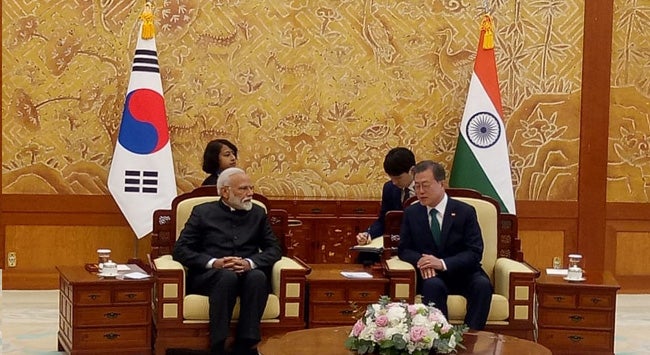
| Title: | Time for Stronger India-South Korea Strategic and Defence Alliance |
| Author/s: | Lakhvinder Singh |
| Abstract: | The economic and security order in the Asian region is going through fundamental structural changes. At this historical juncture, the foreign policy changes advocated by the new Yoon Seok-Yeol administration are bound to bring India and South Korea closer together like never before. Working together, they have the potential to shape a new security and economic architecture to maintain peace and prosperity in the region. |
| Date: | 5 May 2022 |
| Read More |
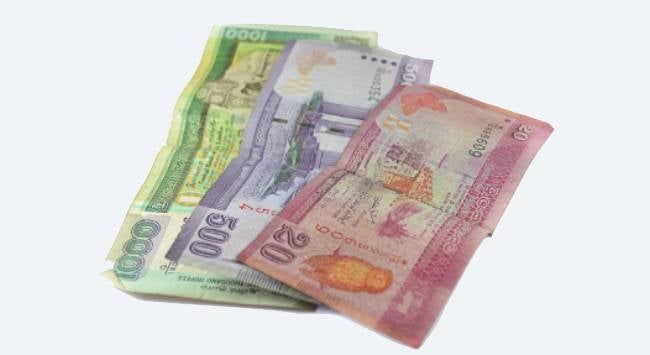
| Title: | The Fallen Sri Lankan Rupee: Not Just Another Economic Crisis |
| Author/s: | Namrata Yadav, Vinod Rai |
| Abstract: | For more than a month now, Sri Lanka’s 21 million people have been facing 10-hour power cuts and a scarcity of food, essential items and medical facilities. They are living under much instability and economic insecurity as the government announced it will be defaulting on its outstanding debt of US$7 billion (S$9.6 billion) this year. The current condition has been attributed to Sri Lanka’s massive current account deficit and depreciated foreign reserves. However, Sri Lanka’s ‘tale of twin deficits’ has been in the making for years now. Today, the country is facing an unprecedented debt crisis and seeking an International Monetary Fund loan for the 17th time. |
| Date: | 27 April 2022 |
| Read More |
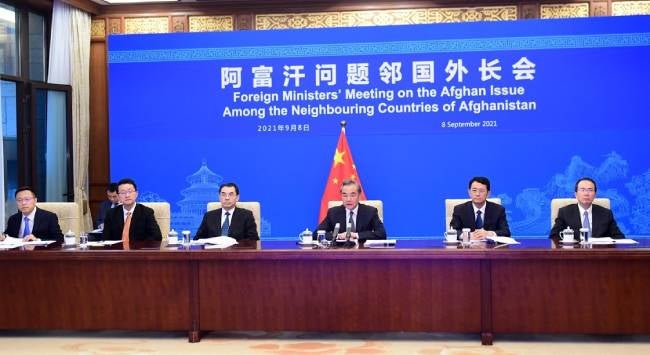
| Title: | China’s Diplomatic Investments in South Asia |
| Author/s: | Amit Ranjan, Zheng Haiqi |
| Abstract: | Between January and March 2022, Chinese Foreign Minister Wang Yi visited all the countries in South Asia, apart from Bangladesh and Bhutan. His visit highlighted the indispensable nature of the region to China. |
| Date: | 20 April 2022 |
| Read More |
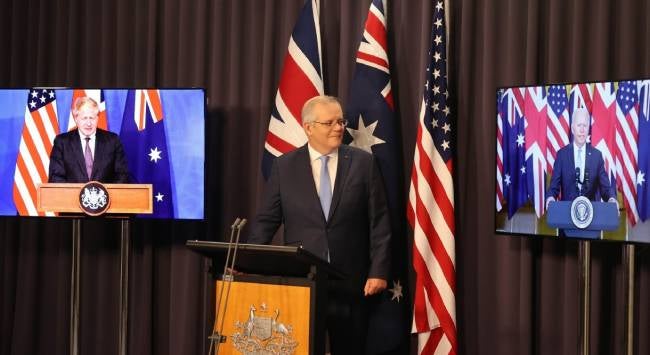
| Title: | Is AUKUS really an ‘Alliance’? |
| Author/s: | Thomas Wilkins |
| Abstract: | The announcement of the trilateral AUKUS partnership of Australia, the United Kingdom and the United States has left analysts trying to make sense of its true nature and purpose. Six months on from the shocking announcement, this paper seeks to shed light on precisely what AUKUS represents and whether it constitutes an ‘alliance’ or something completely different altogether. It makes the paradoxical case that AUKUS fails to conform to the narrow definition of a military alliance pact since it contains no formal mutual security treaty. Yet, at the same time, it could virtually constitute one due to the deep and extensive cooperation it entails and the extant alliance relationships it encompasses. |
| Date: | 1 April 2022 |
| Read More |
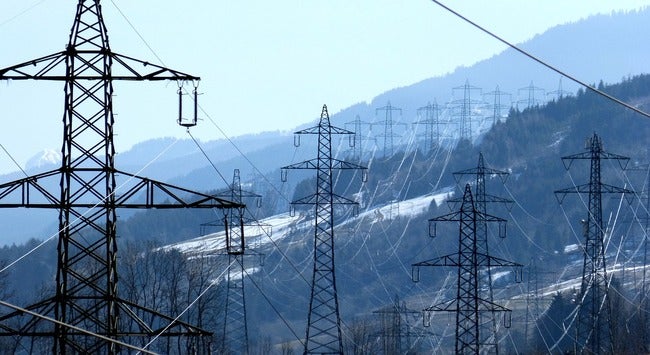
| Title: | Ratification of the MCC Nepal Compact: Domestic Political Implications |
| Author/s: | Wini Fred Gurung, Amit Ranjan |
| Abstract: | In February 2022, the Nepal government ratified the controversial Millennium Challenge Corporation Nepal Compact, which had been on hold for five years. This paper looks at the series of events that led to its ratification. More importantly, it discusses the implications of this move on Nepal’s domestic politics and the upcoming elections. |
| Date: | 22 March 2022 |
| Read More |
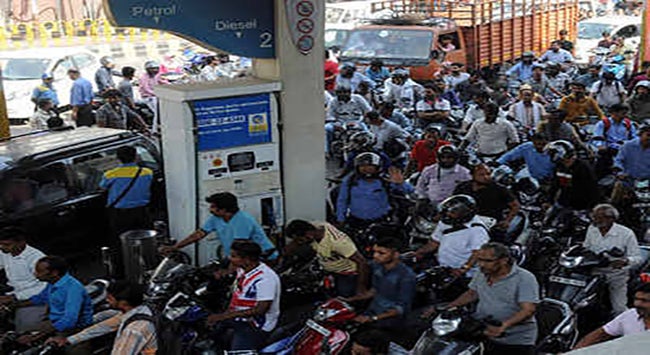
| Title: | Russia-Ukraine Crisis: How Should the South Asian Economies Respond? |
| Author/s: | Nandalal Weerasinghe, Ganeshan Wignaraja |
| Abstract: | The Russia-Ukraine crisis could put the brakes on a global and South Asian economic recovery from the COVID-19 pandemic. As net importers of commodities, the South Asian economies are vulnerable to soaring commodity prices, rising inflation, lower external demand, disruptions in supply chains and increasing poverty. Macroeconomic stabilisation, structural reforms and regional monetary and financial cooperation could help to engineer a soft landing in South Asia. |
| Date: | 12 March 2022 |
| Read More |
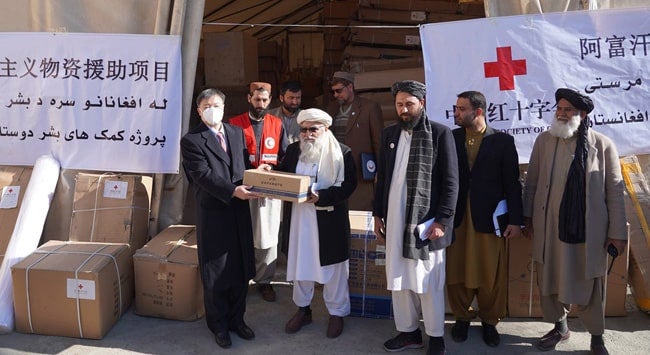
| Title: | Six Months On: China and Taliban 2.0 |
| Author/s: | Claudia Chia, John Joseph Vater |
| Abstract: | In the last six months since the Taliban took control of Kabul, the relations between the group and Beijing have grown. China has followed through on its promise of humanitarian assistance and has been outspoken on international platforms in calling for support and aid to rebuild the Afghan economy. This paper looks at the interactions between Beijing and the Taliban-led interim government in Kabul as well as the new security challenges that China faces in Afghanistan’s developing security matrix. |
| Date: | 8 March 2022 |
| Read More |
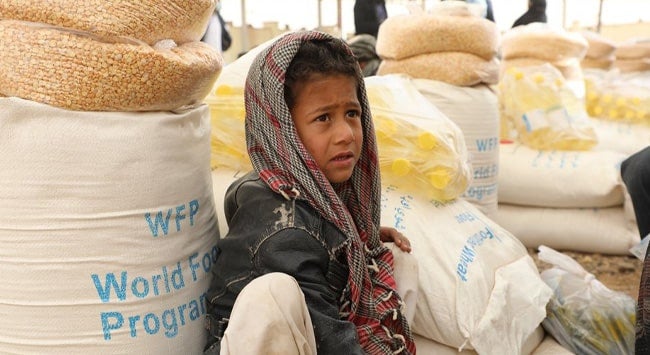
| Title: | From Realpolitik to Real Politics: Spiralling Humanitarian Catastrophe in Afghanistan |
| Author/s: | Chayanika Saxena |
| Abstract: | The geopolitics in and of the humanitarian crisis in Afghanistan has revealed both the insolence and incompetence of the international state system in which human security continues to rank much below the more traditional understanding of security. This is not to suggest that these challenges and threats are inherently problematic or wrong. That said, the framing of such issues as the centrepiece of the global agenda often comes at the cost of ignoring the tragedies that befall human survival, both in times of conflict and peace. Right now, what is needed is momentum around concrete humanitarian action that can salvage whatever little remains of Afghanistan’s socio-economic and political system. For a country that has been ravaged by war for more than 40 years, it is incumbent upon the international community’s collective consciousness to rescue Afghanistan from realpolitik and focus on its worrying reality instead. |
| Date: | 4 March 2022 |
| Read More |
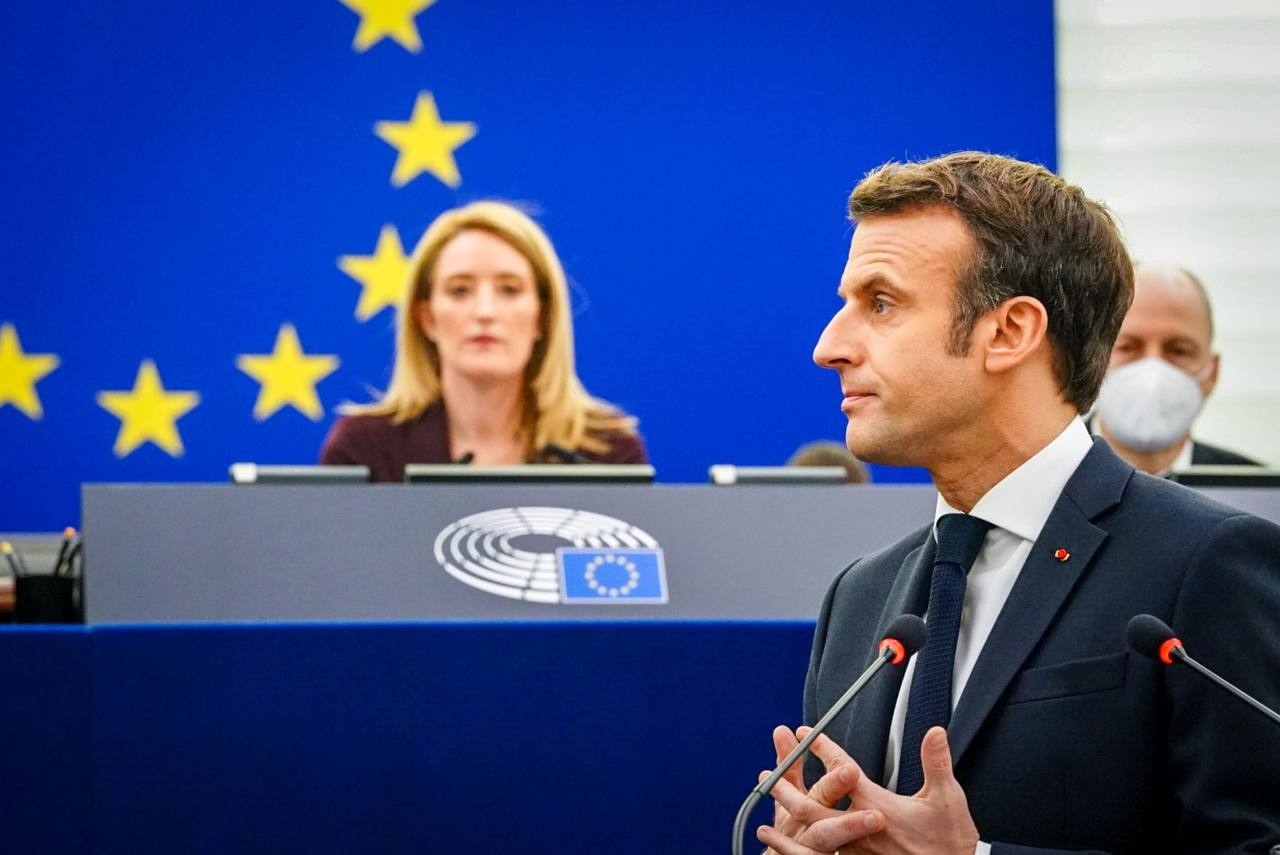
| Title: | After AUKUS: France Tailors its Indo-Pacific Strategy |
| Author/s: | Mathieu Duchâtel |
| Abstract: | Comprising Australia, the United Kingdom and the United States (US), AUKUS not only caught French foreign and security policy circles by surprise but also undermined France’s interests in the Indo-Pacific, resulting in adjustments to its Indo-Pacific strategy. Despite adopting adjustments on several fronts, France’s security engagement with partners in the Indo-Pacific, including the US, will continue unaffected and are even likely to deepen. |
| Date: | 18 February 2022 |
| Read More |
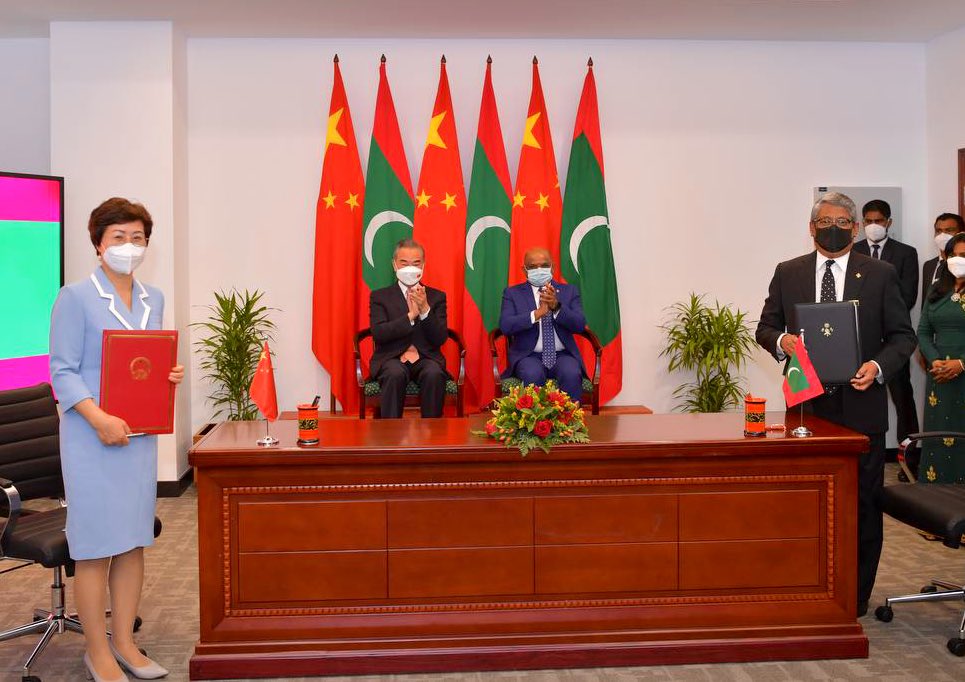
| Title: | Balancing China and India: An Unenviable Task for the Maldives |
| Author/s: | Amit Ranjan |
| Abstract: | During Chinese Foreign Minister Wang Yi’s visit to Malé, the Maldives and China signed five important agreements. However, his landing on 7 January 2022 coincided with the ‘India Out’ rally, which has intensified after the release of the former President of the Maldives, Abdullah Yameen, from house arrest in November 2021. Wang Yi’s visit has taken place at a time of escalating Sino-India military tensions in the Himalayas, Malé’s growing closeness to New Delhi and the fuelling of the ‘India Out’ campaign in the Maldives. Hence, the impact of his visit on domestic politics and the external affairs of the island nation deserves attention. |
| Date: | 10 February 2022 |
| Read More |
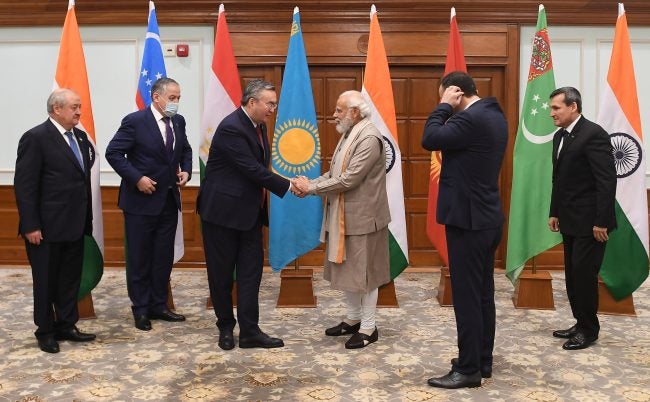
| Title: | The First India-Central Asia Summit |
| Author/s: | Claudia Chia, Zheng Haiqi |
| Abstract: | The first India-Central Asia summit took place virtually on 27 January 2022, commemorating 30 years of diplomatic ties. The summit was the first engagement at the leadership level between India and the Central Asian Republics. This elevation of ties came shortly after the third India-Central Asia Dialogue at the foreign ministers’ level, which was organised in December 2021. This paper examines the motivations behind the recently renewed vigour of New Delhi to build stronger relations and strengthen economic and security cooperation with Central Asia. |
| Date: | 8 February 2022 |
| Read More |
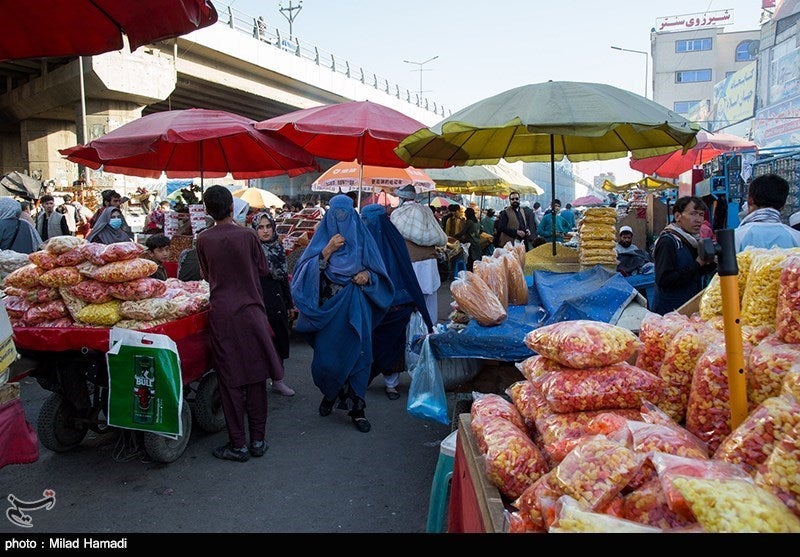
| Title: | Mapping Regression and Retribution: The Taliban and the New Afghanistan |
| Author/s: | Shanthie Mariet D’Souza |
| Abstract: | Afghanistan became an Islamic Emirate headed by the Taliban on 15 August 2021. Ever since, the country’s new rulers have struggled to establish a modicum of governance mechanism in the country. Notwithstanding their incapacity on this front, the Taliban have begun building a regime that not only undermines the achievements and progress made by Afghans in the past two decades but is also essentially a concerted attempt to push the country and its citizens into a regressive trough. |
| Date: | 17 January 2022 |
| Read More |
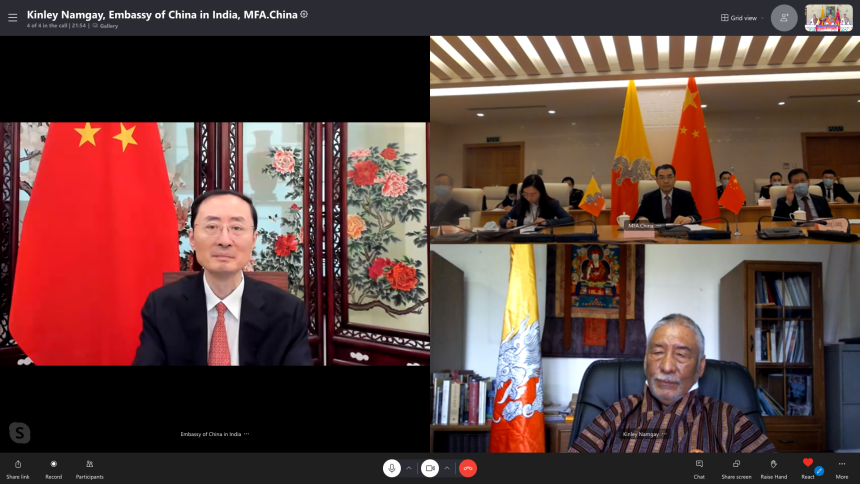
| Title: | Bhutan: Walking a Tightrope |
| Author/s: | Amit Ranjan |
| Abstract: | Nestled between India and China, Bhutan has been walking a tightrope in dealing with the two Asian powers. While country is politically close to New Delhi, Beijing does not have diplomatic residence in Thimphu. In October 2021, Bhutan and China signed a memorandum of understanding to expedite border negotiation. This paper analyses the boundary issues between the two countries and Thimphu-Beijing engagements. It also examines India’s concerns in this regard. |
| Date: | 17 January 2022 |
| Read More |
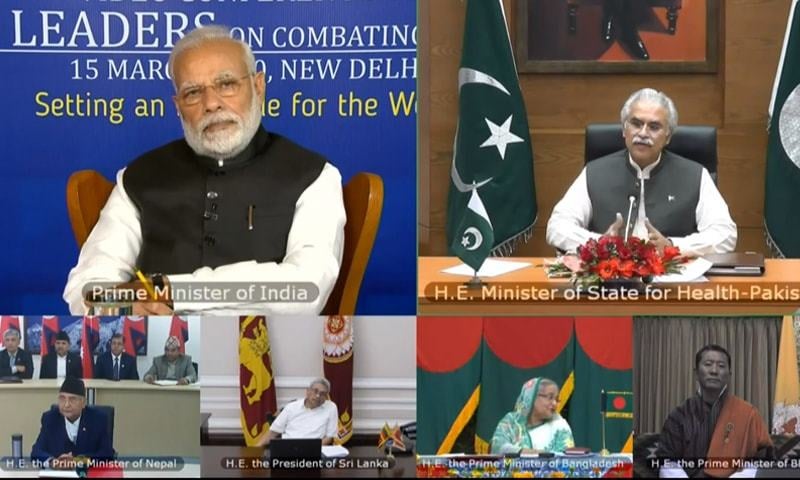
| Title: | India and South Asia: The Elusive Sphere of Influence |
| Author/s: | Chilamkuri Raja Mohan |
| Abstract: | ‘Spheres of Influence’ is a notion that has not disappeared from international relations despite the significant democratisation of international relations. Independent India did inherit an expansive sphere of influence from the British Raj, but Partition, alienation from the West and inward economic orientation made it hard to sustain that legacy. While its ability to regain regional influence has grown along with economic rise, Delhi faces formidable new challenges in reconstituting a South Asian sphere of influence. India’s focus must instead be in tending the region carefully rather than setting ambitious and unrealisable goals. |
| Date: | 6 January 2022 |
| Read More |
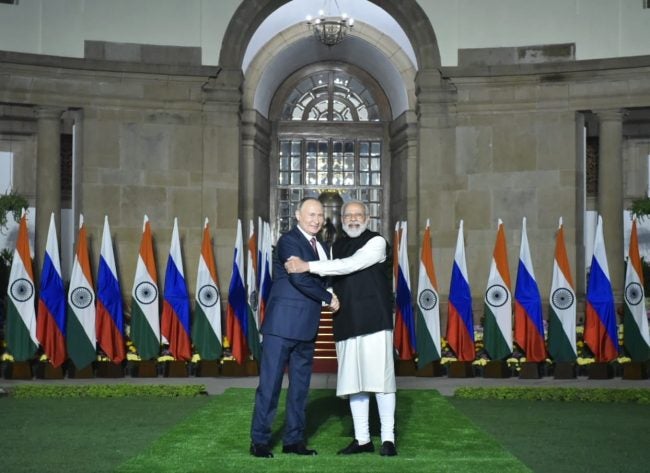
| Title: | India and Russia: Contemporising Historical Ties and Broadening Cooperation |
| Author/s: | Zheng Haiqi, Claudia Chia |
| Abstract: | Following his meeting with American President Joe Biden in June 2021, Russian President Vladimir Putin left Russia for the second time in the year on 6 December 2021 for a visit to India for the 21st Annual India-Russia Summit. Aside from renewing the 10-year bilateral Military-Technical Cooperation Program, Moscow and New Delhi released a 99-point joint statement in which they inked 28 memorandums of understanding spanning defence, energy, trade, culture and education.
Significantly, both sides convened the inaugural Foreign and Defence Minister’s ‘2+2 Dialogue’, which India had previously undertaken with the United States and Japan. This meeting signals that India and Russia are making definitive actions to deepen ties, broaden areas of cooperation and contemporise their strategic partnership to face the changing geopolitical realities. |
| Date: | 3 January 2022 |
| Read More |
Load more


